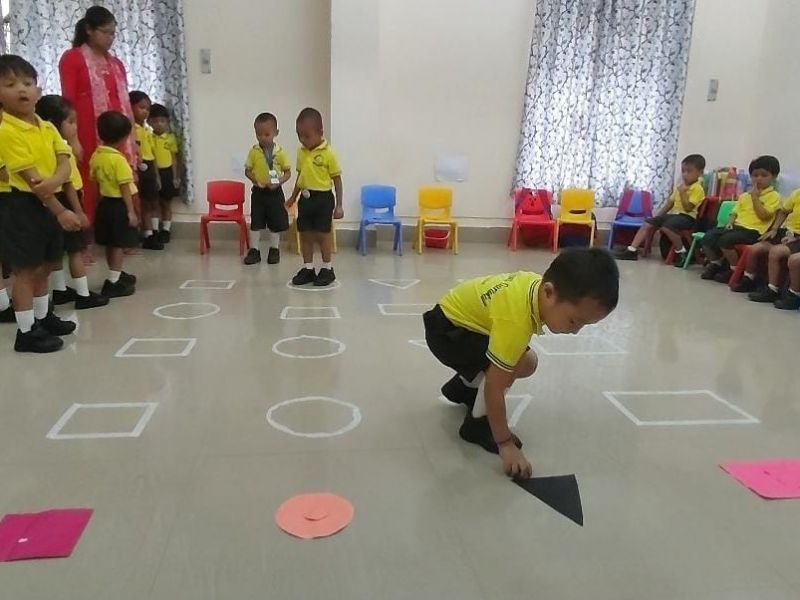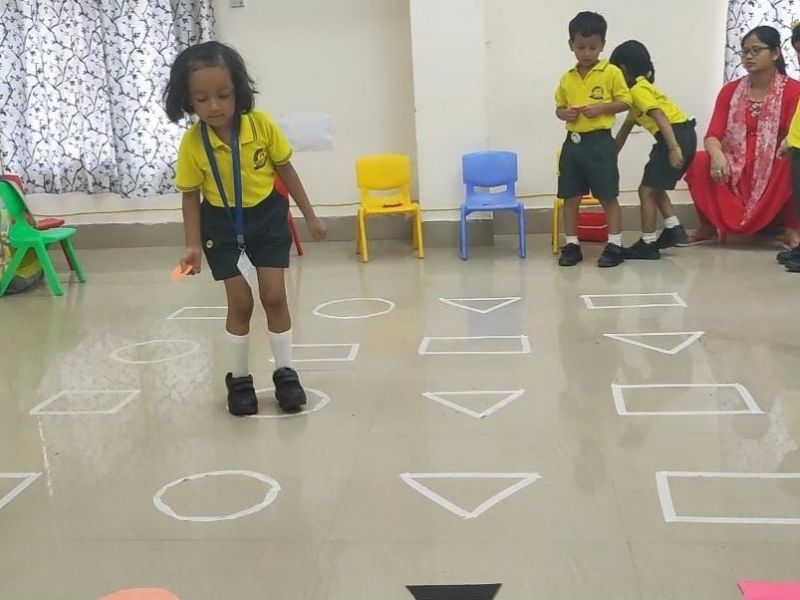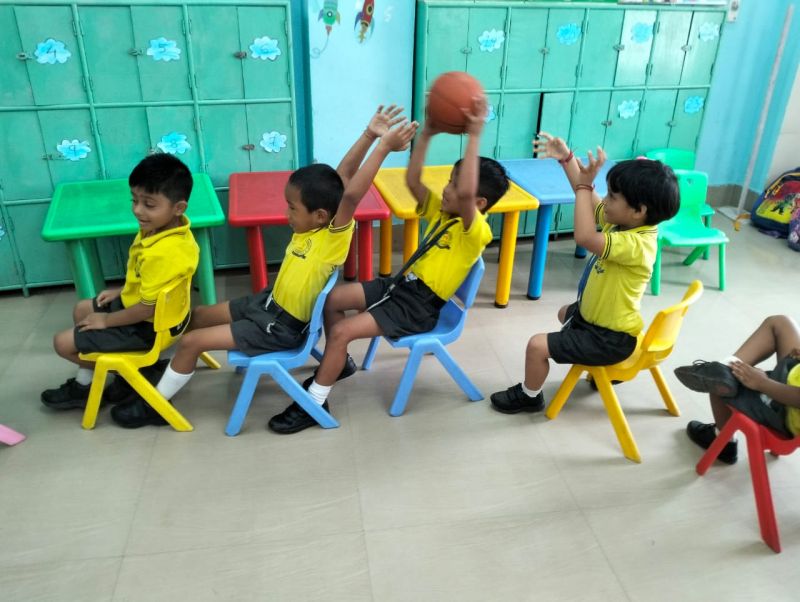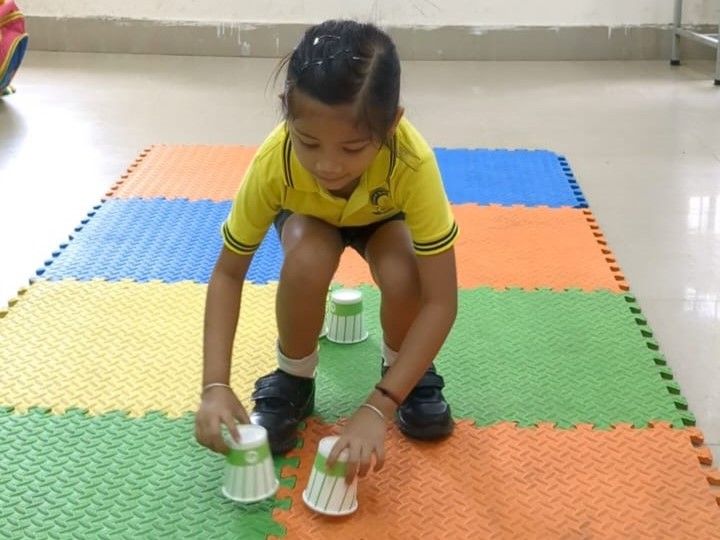Gross motor skills are the physical abilities that involve large muscle groups and enable individuals to perform activities like walking, running, jumping, and balancing. These skills are essential for a child's overall development and are particularly important in a school setting. Here's how gross motor skills are typically addressed by us:
- Physical Education (PE) Classes: Physical education classes are an integral part of the school curriculum and focus on developing students' gross motor skills. PE teachers design activities and games that enhance locomotors skills, coordination, balance, and strength. These classes include running, jumping, climbing, throwing, catching, and other movements that promote overall physical fitness.
- Outdoor Play: In the outdoor play areas students engage in physical activities during sports hour, recess or breaks. We have equipment like slides, swings, climbing structures, and open spaces for running and playing games. Outdoor play helps children develop their gross motor skills while also encouraging social interaction and cooperation.
- Sports and Athletics: Sports and athletic programs involve team games like soccer, basketball, volleyball, individual sports like track and field events. Participating in these activities helps students refine their gross motor skills, improve coordination, develop stamina, and learn essential skills like teamwork, sportsmanship, and goal setting.
- Integration in Classroom Activities: Teachers incorporate gross motor activities into classroom lessons to engage students and promote physical movement by incorporating gestures, actions, or body movements while learning a new concept to stimulate gross motor skills while supporting academic learning.




